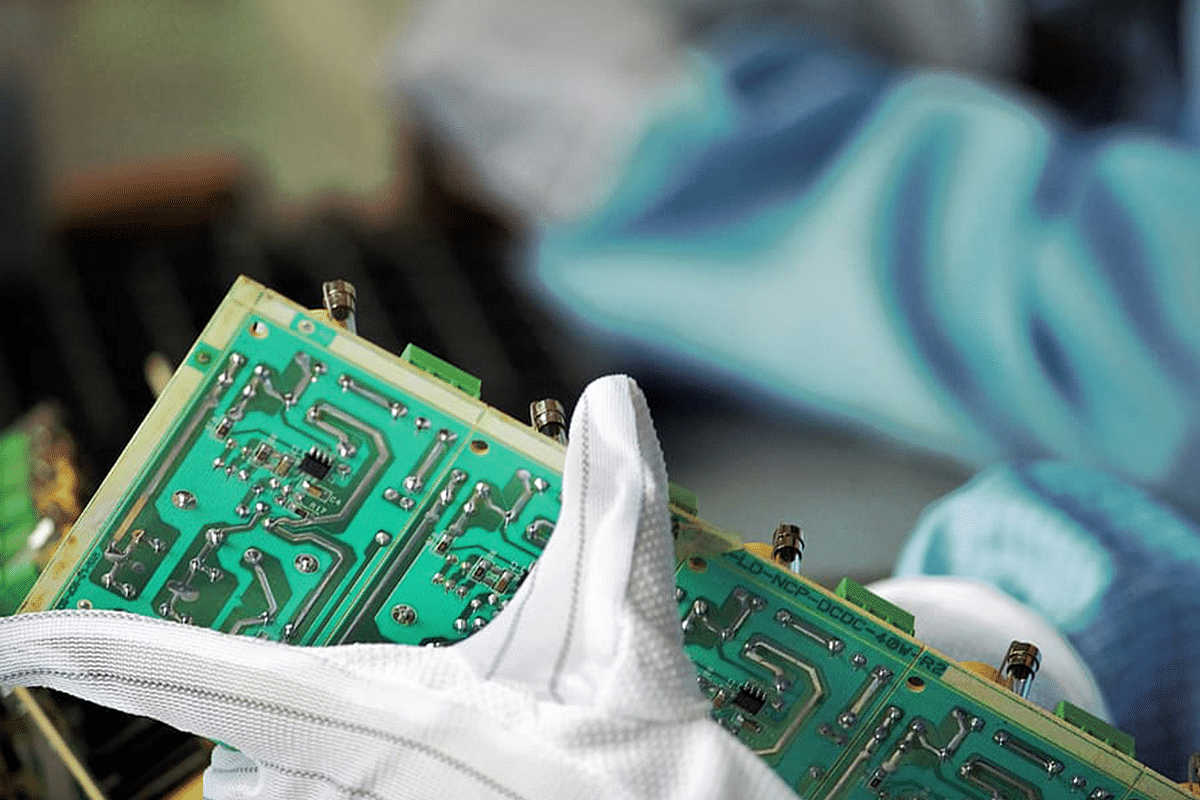Economy
Chip Wars: After Netherlands And Japan, The US Wants South Korea To Isolate China

The US has requested Seoul to urge Samsung Electronics and SK Hynix to limit sales to China in case of a potential ban on Micron.
The White House requested that South Korean chipmakers refrain from filling a potential market gap in China if Micron is banned, in an effort to unite allies against China's economic pressure tactics on the semiconductor front.
As reported by the Financial Times, the White House requested the US president's South Korean counterpart, President Yoon Suk Yeol, to bring up the issue during his visit to Washington, on Monday (24 April), as four insiders reveal.
Action from the Chinese Cyberspace Administration (CAC) against Micron is uncertain following their investigation. Micron could potentially face significant consequences, as revenue from mainland China and Hong Kong constituted a quarter of their total revenue.
US officials and business executives view the CAC probe as Beijing's response to President Biden's hardline stance on preventing China's access to advanced semiconductors.
Micron's case tests whether China will take economic action against a large US company, marking a defining moment for Beijing.
The US has requested Seoul to urge Samsung Electronics and SK Hynix to limit sales to China in case of a potential ban on Micron, as per the report.
The US has asked an ally to involve its companies in countering China in the Indo-Pacific, a first of its kind request that comes as South Korea's National Security Adviser, Suh Hoon Yoon visits Washington.
The timing of the White House's request is sensitive given the global political climate.
The US National Security Council stated that they aim to coordinate investment in semiconductors, secure critical technologies, and tackle economic coercion. They hope the state visit will boost cooperation in all these areas.
Seoul's response remains uncertain as US and South Korean officials are in the process of arranging a visit.
The main issues being discussed include ways the US can offer more security, particularly concerning the nuclear umbrella, as North Korea continues to escalate tensions on the peninsula.
Yoon faces a tricky situation with the request related to Micron. He became the leader last year with a more aggressive stance on China than his predecessor, Moon Jae-in. Recently, he accused China of using force to alter the status of Taiwan, which triggered a furious reaction from Beijing.
The administration is concerned that US economic security agenda may hurt Samsung and SK Hynix's competitiveness through export controls, leading to friction with US efforts to unite allies.
Samsung and SK Hynix, two of South Korea's largest semiconductor manufacturers, will be unhappy with any attempts to limit their operations in China. However, the US may hold some measure of power.
South Korean firms with chip production plants in China were granted exemptions by the US when it implemented wide-ranging export controls relating to semiconductors in October 2020.
These waivers must be extended in the near future. Presently, no update has come from the commerce department concerning the status of these waivers.
China has employed economic pressure on Taiwan, Lithuania, and Australia. Despite Biden's implementation of strict chip export regulations and sanctions on Chinese firms, China has not retaliated significantly against the US.
US placed Yangtze Memory Technologies Co, a Chinese memory chip producer, on its "entity list" in December.
This prevents companies from exporting American technology to the competitor without a difficult-to-obtain license, and the White House sees it as a Chinese "national champion".
Support Swarajya's 50 Ground Reports Project & Sponsor A Story
Every general election Swarajya does a 50 ground reports project.
Aimed only at serious readers and those who appreciate the nuances of political undercurrents, the project provides a sense of India's electoral landscape. As you know, these reports are produced after considerable investment of travel, time and effort on the ground.
This time too we've kicked off the project in style and have covered over 30 constituencies already. If you're someone who appreciates such work and have enjoyed our coverage please consider sponsoring a ground report for just Rs 2999 to Rs 19,999 - it goes a long way in helping us produce more quality reportage.
You can also back this project by becoming a subscriber for as little as Rs 999 - so do click on this links and choose a plan that suits you and back us.
Click below to contribute.
Latest